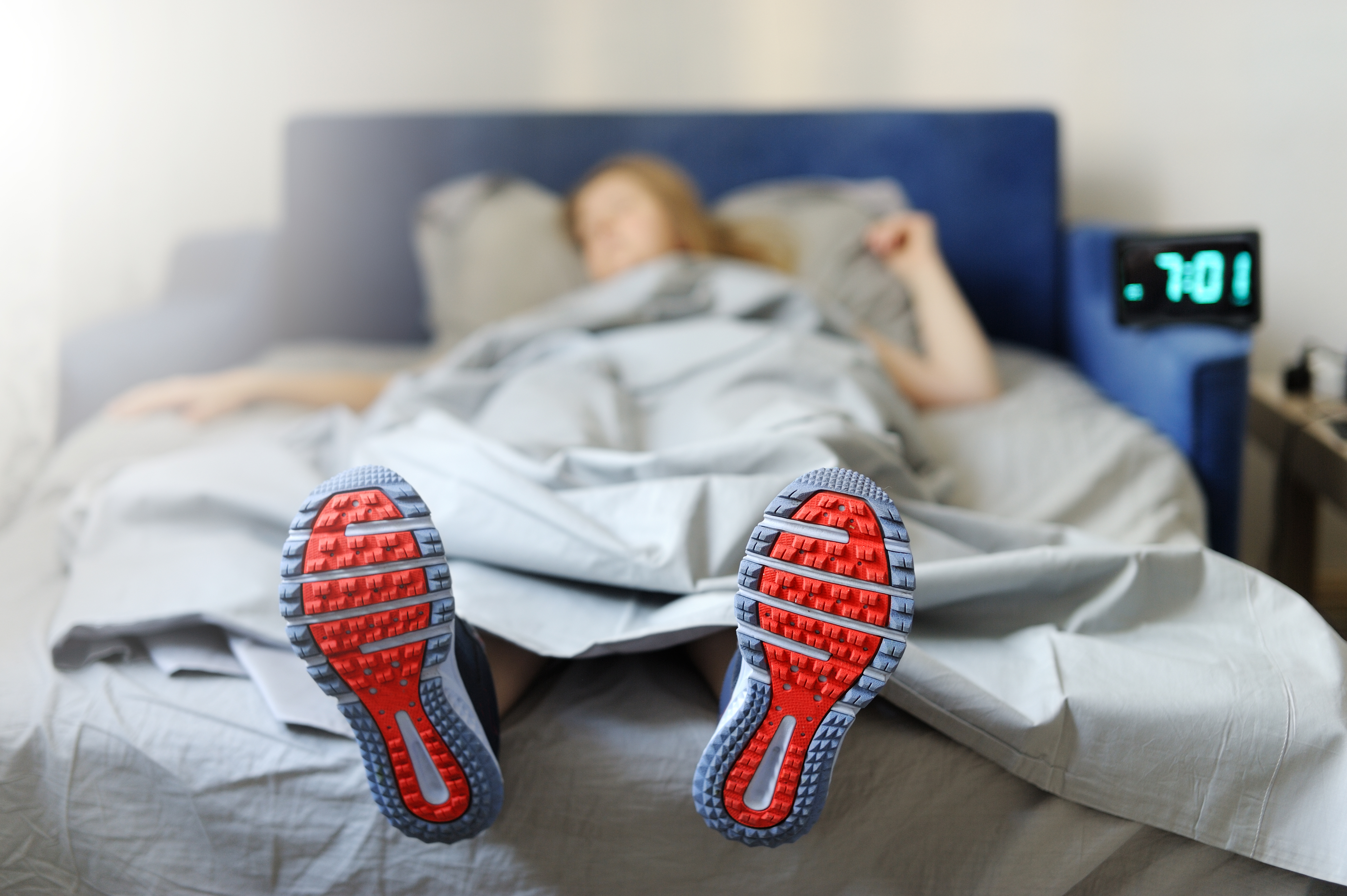How does sleep help athletes in peak performance?

Achieving peak performance isn't solely about rigorous training and a balanced diet.
While these aspects undoubtedly play a pivotal role, one often overlooked yet equally critical factor is sleep. The restorative power of sleep goes beyond merely recharging the body – it holds the key to unlocking an athlete's full potential.
Let’s dive deep to explore why rest is important for athletes who have their body in peak health, maintain rigorous workout schedules and count on their mind and body for giving their best.
Importance of Sleep for Athletes
Athletes subject their bodies to intense training, rigorous competitions, and challenging workouts, all of which place considerable stress on their physiological and psychological systems. Adequate sleep is a key factor that facilitates recovery, enhances performance, and supports overall health in athletes.
Physical Recovery
After a day of intense training or competition, an athlete's muscles experience microscopic damage and inflammation. Sleep is the time when the body repairs and rebuilds these damaged tissues. During deep sleep stages, the release of growth hormone increases, promoting muscle and tissue repair. Moreover, sleep helps to restore glycogen stores in the muscles, which are essential for sustained energy during physical activity.
Cognitive Restoration
Physical performance is intricately linked with cognitive function. Sleep plays a critical role in consolidating memories, enhancing learning, and sharpening decision-making skills. Athletes need quick reflexes, accurate judgments, and the ability to adapt to changing situations during a game. Insufficient sleep can impair these cognitive functions, leading to decreased performance and an increased risk of injuries.
Hormonal Balance
Sleep is intricately connected to hormonal regulation. Inadequate sleep disrupts the balance of hormones like cortisol, which is involved in stress response, and testosterone, which is crucial for muscle growth and repair. Chronic sleep deprivation can lead to increased cortisol levels and reduced testosterone levels, negatively impacting an athlete's recovery and performance.
Immune Function
Intense physical activity can temporarily suppress the immune system. Sleep is when the immune system becomes most active, combating infections and supporting overall health. Athletes who skimp on sleep are more susceptible to illnesses, which can hinder their training and participation in competitions.
Muscle Repair and Growth
During slow-wave sleep (also known as deep sleep), the body releases growth hormone, which plays a pivotal role in muscle recovery and growth. This is when the body repairs the microtears that occur in muscles during strenuous exercise, leading to muscle growth and enhanced performance.
Energy Restoration
Athletes deplete their energy reserves during physical activities. During sleep, the body restores glycogen levels in muscles and the liver. This glycogen serves as a crucial energy source during subsequent workouts or competitions, ensuring optimal performance.
Neural Pathway Consolidation
Rapid Eye Movement (REM) sleep is associated with memory consolidation and cognitive function. Athletes rely on well-established neural pathways to execute precise movements and decisions during games. REM sleep aids in refining these pathways, contributing to improved coordination and reaction times.
Hormonal Balance Restoration
Sleep is when the body regulates hormonal levels, including those of cortisol and testosterone. After heavy activity, cortisol levels might be elevated due to stress on the body. Proper sleep helps bring these levels back to a balanced state, supporting the recovery process.
In the Arena of Sleep: Learning from Elite Athletes
Elite athletes, those who've tasted victory and stared down defeat, offer profound insights into the art of mastering sleep for peak performance. Their routines are more than just a series of habits; they're a symphony of carefully orchestrated actions that prioritize rest.
Consistent Sleep Schedule
Top athletes adhere to a consistent sleep schedule, even on rest days. This regularity regulates the body's internal clock, enhancing the quality of sleep and optimizing performance.
Pre-Bedtime Rituals
Calming pre-bedtime rituals prepare the mind and body for sleep. These rituals may include gentle stretches, reading, or meditation, promoting relaxation and setting the stage for restful slumber.
Ideal Sleep Environment
Crafting an ideal sleep environment is essential. Dark, quiet, and comfortable surroundings are crucial for uninterrupted sleep. Some athletes even swear by sleep-enhancing aids like blackout curtains and white noise machines.
Inadequate sleep or discomfort during sleep disrupts recovery, ultimately impacting performance. So, it’s important to focus on another crucial element in the sleep environment – the mattress.
Orthopedic comfortable mattresses have revolutionized the concept of sleep for athletes. These mattresses are specifically designed to align the body's skeletal structure, ensuring that pressure points are adequately supported and cushioned. They prevent excessive strain on muscles and joints, facilitating quicker recuperation from the day's physical exertions.
SmartGRID mattresses take the concept of orthopedic comfort to a whole new level. They incorporate a highly advanced technology that offers tailored support and cushioning based on an individual's unique body contours. The SmartGRID mattress consists of a three-dimensional grid structure made from flexible, hyper-elastic polymers. This grid responds dynamically to pressure, redistributing it evenly across the mattress surface.
Nutrition and Hydration
Athletes are meticulous about their diets, and this extends to their sleep routine. Avoiding heavy meals close to bedtime and staying hydrated without excessive fluid intake before sleep are key practices.
Power of Naps
Strategic power naps can boost alertness and performance. However, athletes ensure these naps are short – around 20-30 minutes – to prevent grogginess.
Unlocking Your Potential: Embracing the Athlete's Sleep Philosophy
Incorporating these lessons from elite athletes into our own lives can be transformative, even if we're not training for a championship. The mindset that prioritizes sleep as a cornerstone of success is applicable to any endeavor.
Whether it's acing a work presentation, conquering a personal goal, or simply enjoying life to the fullest, understanding the symbiotic relationship between sleep and achievement is essential.
Experience deep sleep and recharge your mind and body, with the UK’s first and only smartGRID mattress. Voted ‘best buy’ by the renowned Which? Magazine, HiGRID – The Sleep Company’s range of smartGRID mattresses are valuable additions to your home and family’s wellbeing.






